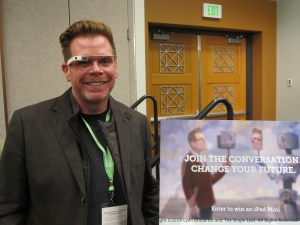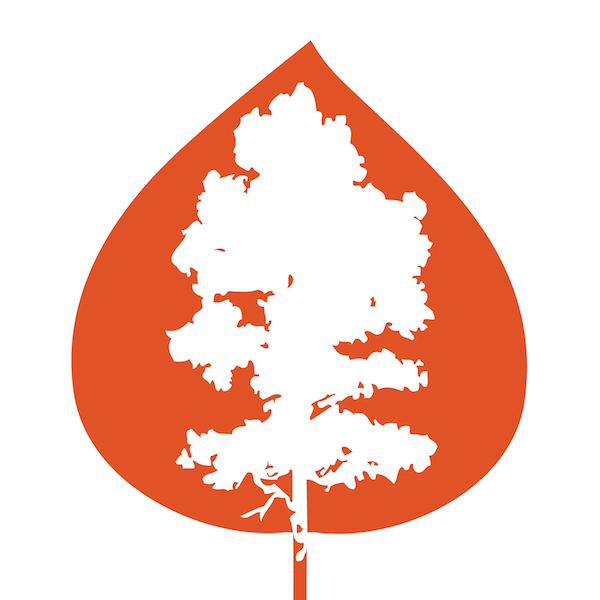 RootsTech 2014 opened Wednesday with the Innovator Summit held at the Salt Palace in Salt Lake City, Utah. This year RootsTech set aside an entire day to focus on innovative ways to address the issues that affect genealogists and look to the future. The conference is being held in a bigger venue this year allowing more people the opportunity to attend the largest genealogy conference in North America. Projected numbers indicate that RootsTech 2014 will qualify as the largest genealogy conference in the world!
RootsTech 2014 opened Wednesday with the Innovator Summit held at the Salt Palace in Salt Lake City, Utah. This year RootsTech set aside an entire day to focus on innovative ways to address the issues that affect genealogists and look to the future. The conference is being held in a bigger venue this year allowing more people the opportunity to attend the largest genealogy conference in North America. Projected numbers indicate that RootsTech 2014 will qualify as the largest genealogy conference in the world!
Ben Bennett, representing FamilySearch International, made the introductions. FamilySearch International invited those present to be forward-thinking and enhance the pursuit of genealogy through the development of new ideas. As it was advertised, “Join the Conversation. Change Your Future.”
Andrew Fox introduced findmypast and related that the company is looking to partner with tech organizations and provide a developer platform to expand the use of the information held in their databases. He said that findmypast can benefit the world of academia in science and social science. He mentioned a few projects that are currently being researched using specific record sets. Findmypast is continually evaluating how to use its data, recognizing that the applications are endless. The big announcement is that findmypast (fmp) is releasing the fmp capture app that will allow individuals to record audio, upload photos, and store notes. If you are in Salt Lake, stop by the findmypast booth for a demonstration.
Chris Dancy of BMC Software and a data exhaust cartographer gave the keynote presentation. I had the opportunity to talk with Chris before the session. It is obvious upon meeting him that he is futuristic in his thinking. Besides wearing Google glass, he was wearing 11 sensors that provide data on his current state of being. Since we were at a genealogy conference, I asked him about his heritage. He told me that he comes from Irish and Nordic heritage. With his forward-thinking, he has had his entire genome sequenced. Although he tested his DNA with 23andMe, he uses a company called Exogen Biotechnology. Inc. that monitors changes in his DNA on a regular basis. He uses this data to make adjustments in his lifestyle and environment.
In his presentation, “Facebook for the Dead”, he discussed the fact that, organically, it’s easy to die. Death used be “dualistic,” meaning that not only did people die but their data files died too. The statistic that 3.9 billion people will die during a individual’s lifetime and the fact that 7,000 people died during Chris Dancy’s presentation is daunting. Despite these sobering facts, Chris talked about the ways that people live on. Historically, Egyptians had the Book of the Dead as well as the Scroll of Ani. Now we are remembered through the remaining bits of data in our digital world.
It’s hard to die digitally. People can be followed on Twitter even after they take their last breath. Chris Dancy shared an experience he had in Las Vegas. He told the story of how he witnessed Michael Jackson being resurrected during a show wearing clothes Michael never wore and singing songs he never sang. It was as if Michael had never died. This type of digital reconstruction is possible not only possible for Michael Jackson but us too. Dancy cited cost as the prohibitive factor.
“We are putting are lives online, and we are also putting our deaths online,” and Chris Dancy gave himself as an example. With the previously mentioned 11 sensors and 7 system monitoring him, he is able to record his vital information on a Google calendar. He is making a digital history that will live on after his mortal death.
The dead population is beginning to grow larger than life in the cyber world. Chris Dancy urges people to evaluate the systems in their lives. He asked us to consider how our data will remember us. He mentioned that social networking companies have varied terms of service that affect our information upon death. The record of our lives becomes complicated by these terms. He mentioned that Google was one of the better companies with their terms of service. Nevertheless, Chris Dancy suggested that making it possible to link accounts and becoming aware of what is posted online will help construct an accurate legacy.
There are many resources that can be used to help preserve the past. One example is Eterni.me, a website that allows you to create a lasting digital history. Chris Dancy encouraged developers to create middle-ware to connect different sites together. The platform that is used is important but the most important factor is you.
Chris Dancy ended his address by talking about an episode of the British show Black Mirror entitled “Wish You Were Here” where the boyfriend of a character is virtually reconstructed and she questions his reality. Ultimately, we may be able to reconstruct a 3D virtual reality of the deceased using the data they left behind, especially photos aggregated online. In many ways, we are being enabled to virtually resurrect the past.
Copyright ©2014 Lynn Broderick and the Single Leaf. All Rights Reserved.
